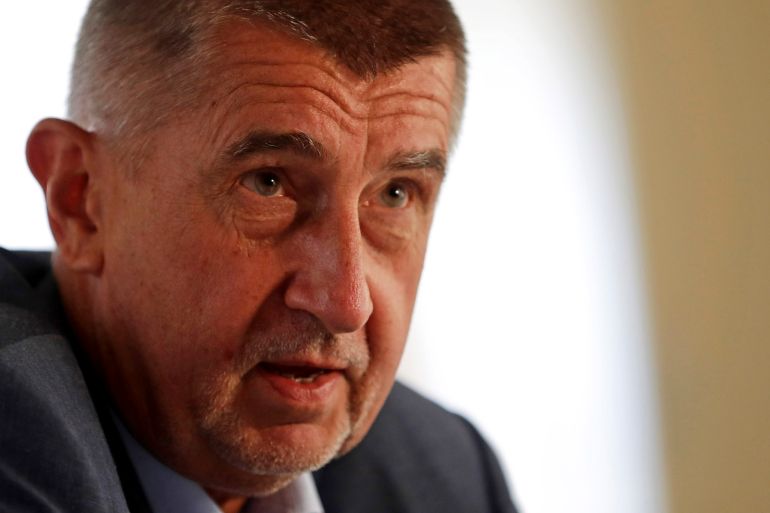Czech voters decide on PM Babis’s future in two-day election
Opinion polls indicate Babis’s ANO movement will top the vote, but may not win enough votes to form a new government.

Czechs are voting in a two-day parliamentary election with polls showing Prime Minister Andrej Babis, a populist billionaire, with a strong chance of maintaining support despite a new scandal over his financial dealings.
Polling stations opened at 12:00GMT on Friday, with the vote set to fill 200 seats in the Czech Republic’s lower house of Parliament, the main legislative body in the European Union and NATO member state.
Keep reading
list of 4 itemsCzechs sign $630m deal for Israeli-made air defence system
Czech vote: President plans to exploit powers to protect Babis
‘Better off here’: Returnee Czechs happy to be home after Brexit
Eurosceptic Babis, 67, has had a turbulent term since winning office in December 2017. His tenure has seen rising prosperity but also numerous scandals including alleged fraud involving EU subsidies.
The latest centred on the publication of the Pandora Papers, which alleged that Babis put $22m into shell companies to buy 16 properties in southern France. Babis has denied any wrongdoing.
Despite the scandals, opinion polls indicate Babis’s ANO (YES) movement will top the vote with at least 25 percent support.
But it is not clear if he will win enough votes to be able to form a new coalition government.
Babis has led a minority coalition government of ANO and the leftist Social Democrats. He has also governed with the support of the Communist Party.
Both the Social Democrats and the Communists might struggle to win any parliamentary seats at all this time – and that may force ANO to seek a pact with far-right nationalists to retain power.
Babis runs anti-immigration, anti-EU campaign
Five opposition parties have put aside their differences to create two coalitions aimed at removing Babis from power.
The centre-right Together coalition includes the conservative Civic Democratic Party and Christian Democrats and the liberal-conservative TOP 09 party.
The liberal Pirate Party and STAN, a group of mayors and independent candidates, formed a centre-left coalition.
Each is predicted to win about 20 percent of the vote, and they have both signalled that they would cooperate in forming a government if given the chance.
Babis, meanwhile, has bet on an aggressive campaign, deploying anti-immigration and anti-EU rhetoric, as well as denouncing EU carbon-reduction targets.
He has not ruled out forming a coalition with Freedom and Direct Democracy, an anti-migrant, anti-Muslim party that wants to lead the country out of the EU and hold a referendum on NATO membership. The party is polling at just over 10 percent support.
President Milos Zeman has said he will give the biggest individual party, almost certainly Babis’ ANO, the first chance to form a cabinet.